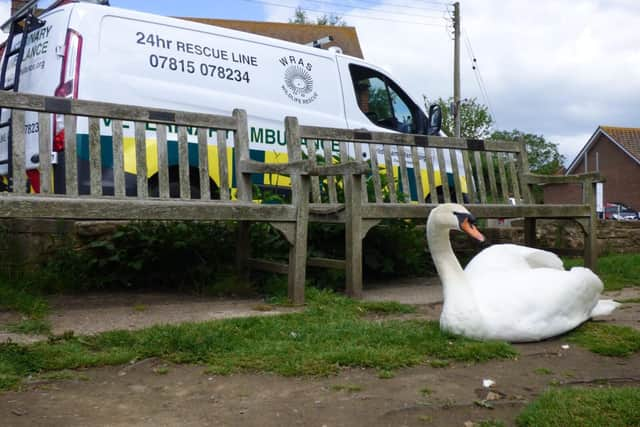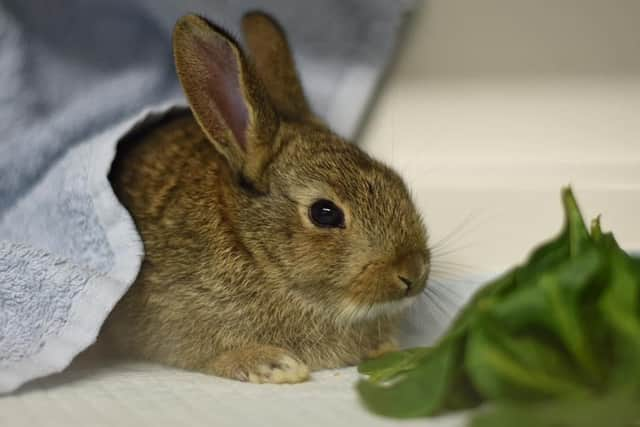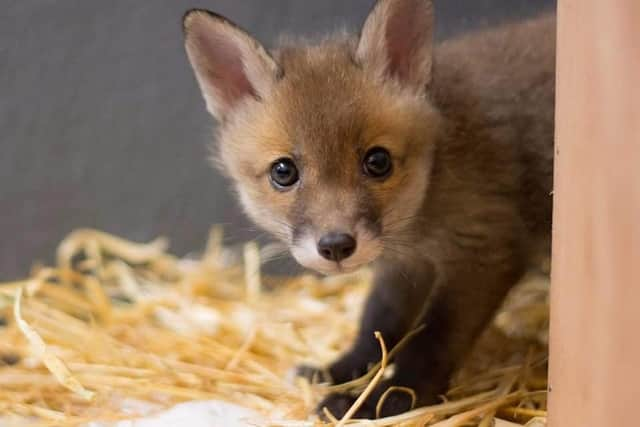Busiest year ever leads to charity appeal for help
and live on Freeview channel 276
This surge strained all our resources to the maximum, coinciding with a decrease in our fundraising income. Regrettably, we anticipate similar challenges for 2024 as the cost of living crisis continues.
At WRAS, we are once again preparing for a rise in casualties during the upcoming months. We are already rescuing fledglings being blown out of trees, taking in orphaned fox and badger cubs. If the trend of increases continues as it generally does each year, our already limited resources will face even greater pressure.
Advertisement
Hide AdAdvertisement
Hide AdMore than half of the mammals treated are of a worry conservation status – primarily “Vulnerable”, and 52% of the birds are listed as Red or Amber conservation status on the RSPB website, indicating a decline in their populations.


To maintain the charities professional wildlife rescue service, we will need to raise an additional £34,000 to support the extra dedicated staff required for the Spring/Summer period. This includes extended reception coverage for rescue coordination into the evenings, additional hours for our dedicated Care Team to admit casualties and provide urgent first aid, and an extension of our Veterinary Surgeon's hours to care for the extra casualties which need their specialist skills.
After a long and wet winter, everyone at WRAS is eagerly anticipating the warmer spring and summer days, despite the challenges being faced. Rising costs and increased workloads are causing genuine concern, especially as we continue to search for a site for our new Hospital.
According to the latest reports on stateofnature.org.uk, the UK ranks among the world's most nature-depleted nations due to a century of habitat loss, management changes, and development. The report highlights that nearly 1 in 6 wild species are at risk, with more species declining since 1970.
Advertisement
Hide AdAdvertisement
Hide AdClimate change is also contributing to the decline in nature, raising questions about how we can reduce our environmental impact. Shifts in weather patterns, such as strong winds, rain leading to floods, and overall warmer temperatures, are all influencing our ecosystem.


The increased development of our countryside, increase in traffic and people using the countryside is causing more wildlife to find themselves coming into conflict with humans and sadly it is the wildlife which generally comes off worse suffering after being shot, run over, entangled in netting, poisoned, attacked, bitten by cats or dogs as well as getting trapped in manmade structures and traps.
“I am reaching out to ask if the people of Sussex could support East Sussex WRAS with a donation of £5 to make a difference for our wildlife this summer," said Trevor Weeks MBE founder and Operations Director.
"Your donation of £5, or more if possible, will contribute to our goal of raising an extra £34,000 to secure sufficient staff and resources for the upcoming Spring and Summer seasons."
Advertisement
Hide AdAdvertisement
Hide AdDonations can be send to East Sussex WRAS, PO Box 2148, Seaford, BN25 9DE or can be made by calling 01825-873003 or online at www.wildlifeambulance.org.


East Sussex WRAS was established as a voluntary group in 1996 by Trevor Weeks who started rescuing wildlife as a young lad of 13 back in 1985. The organisation has grown from a one-man-band to the award winning community charity that it is today. The charity now needs to employing five full-time staff and 10 part-time staff, and an additional five part-time positions during the peak season to cope with the workload.
The charity operates five veterinary ambulances, two technical rescue transit vans, two rescue response cars and a patient transport car. They operate a Casualty Centre at Whitesmith between Lewes and Hailsham, which is now capable of holding around 300 casualties at any one time. The centre is registered with the Royal College of Veterinary Surgeons and inspected every four years by the Veterinary Medicines Directive.
Trevor and the charity are believed to have helped more than 75,000 casualties in its 39-year history.